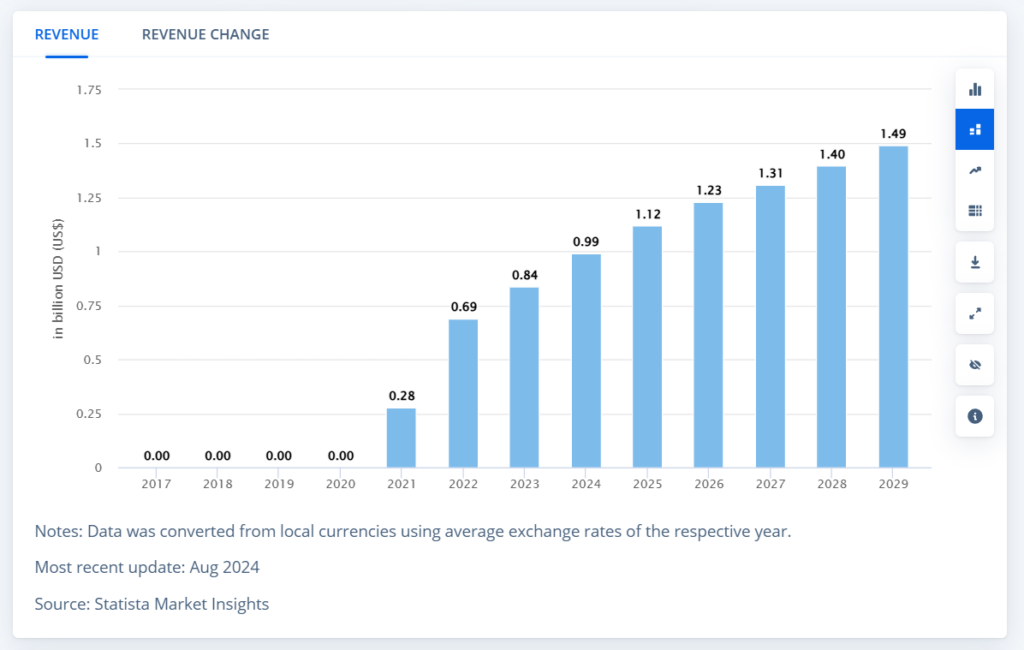Online Betting in Canada: How to Avoid Scams

The gambling industry in Canada, including sports betting, is becoming increasingly vulnerable to digital fraud. According to a TransUnion report for the first half of 2024, this sector recorded the highest level of suspected online fraud attempts among all industries in the country at 9.6%. For comparison, retail experienced 9.2% and government services 7.7%.
Furthermore, Statista projects that the revenue from online sports betting in Canada will reach $1.12 billion USD by 2025, with an expected annual growth rate of 7.4% until 2029. This indicates a growing popularity of betting, which, in turn, may attract more fraudsters to this sector.

Scammers employ various tactics, such as selling fake ‘fixed matches’ or fraudulent predictions. Additionally, some unscrupulous platforms may misuse clients’ funds for personal gain. A notable example is the Canadian cryptocurrency exchange ezBtc, where user assets were transferred to online casino accounts.
Given these risks, it is crucial to be aware of potential threats and take measures to protect your funds and information.
Common types of online betting scams in Canada
One of the most prevalent types involves the creation of fake betting sites. These platforms mimic legitimate bookmakers but are designed to steal customers’ personal or bank data. They often operate under suspicious domain names, use free hosting, or offer unrealistically lucrative terms.
Another common scam involves selling so-called ‘fixed matches.’ Fraudsters claim to have insider information about the outcomes of sporting events and promise guaranteed winnings in exchange for payment. However, the information they provide is completely fabricated, and once they’ve been paid, they disappear without a trace. These schemes are typically promoted on social media and messaging apps. By the way, here are some real events you might want to consider betting on.
Phishing attacks are also common in the online betting industry. Scammers send emails or social media messages, enticing users to click on a link for an exclusive bonus. These links lead to fake websites that collect users’ data, including their logins, passwords, and financial information.

Manipulating odds is another deceptive tactic used by some platforms. After a bet is placed, they adjust the odds, drastically reducing potential winnings or even cancelling the wager entirely.
Fraudsters also take advantage of weak security measures on certain platforms to steal financial information. They rely on unreliable payment methods that share data with third parties, putting users at risk of unauthorized transactions or even losing all the funds in their account.
How to avoid becoming a victim of betting scams
To protect yourself, it’s crucial to follow a few rules and stay cautious when dealing with bookmakers:
- Select only licensed websites. Reputable sportsbooks are always licensed by recognized regulatory bodies, such as the iGaming Ontario, or international authorities like the Malta Gaming Authority. Licensing information is usually displayed at the bottom of the homepage.
- Check customer feedback. User experiences can provide valuable insights into a betting company’s reliability. However, be mindful that some reviews may be fake. Rely on trusted review aggregators or forums to find genuine and unbiased feedback from real users.
- Avoid suspicious offers on social media and messaging apps. Scammers often promote ‘fixed matches,’ ‘guaranteed’ predictions, or ‘secret’ strategies. Remember, legitimate bookmakers never share such information.
- Enable two-factor authentication (2FA) to safeguard your account. This extra layer of security requires an additional code during login, making it nearly impossible for scammers to access your account.
- Keep track of your financial transactions. Regularly review the balance in your gaming account and credit cards. If you notice any fraudulent activity, contact the platform’s support team and your bank immediately.
By following these guidelines, you can reduce risks and protect yourself when participating in online sports betting. Lastly, always practice responsible gambling – without proper self-control, you risk becoming your own worst enemy. For more on this topic, check out this article.
Relevant news

How Technology Is Transforming Online Sports Betting in Canada
Just ten years ago, placing a bet on a match meant visiting a sportsbook website,…

Why Canadian Bettors Prefer Bet365 and Other Key Habits
Ahead of one of the most event-packed sports years – with the Winter Olympic Games,…

Top 5 Tools for Smarter Sports Betting in Canada
Sports betting in Canada has become more complex. Players can now choose from hundreds of…

The Canadian Bettor’s Calendar for 2026
2026 is set to be a busy year for sports betting fans. The main feature…

A Brief Guide to Sports Betting Taxes in Canada
Taxation is a concern for every player who places sports bets on a regular basis.…

Online Betting in Canada: When Convenience Turns Into a Problem
Online betting has become firmly embedded in the habits of Canadian players. There is no…
